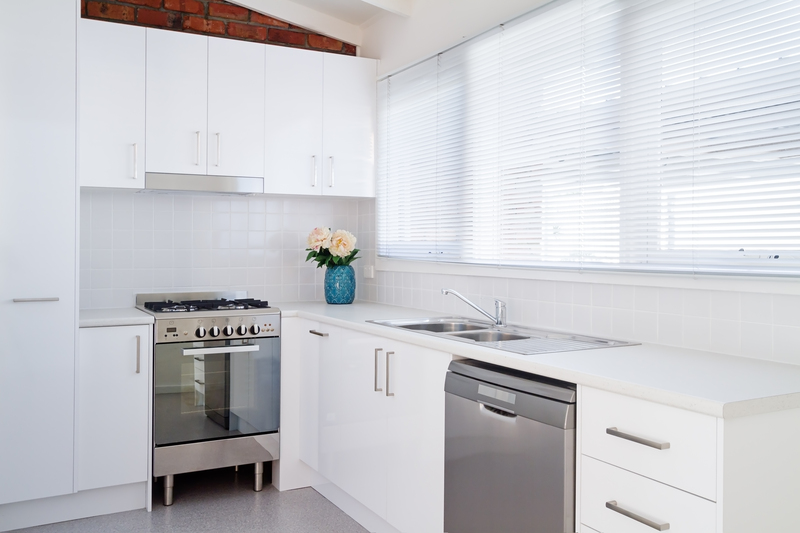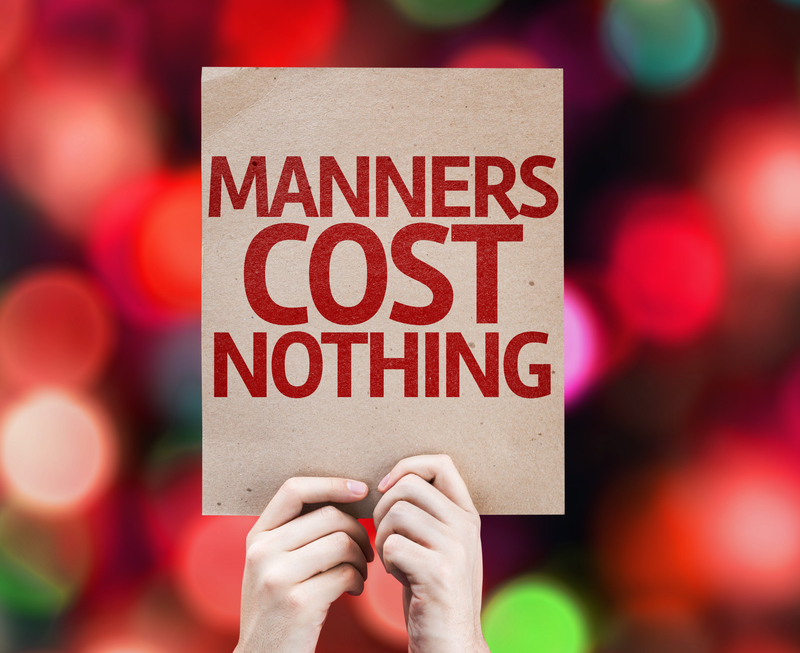Essential Decluttering Steps for a Stress-Free Move
Moving to a new home can be both exciting and overwhelming. One of the most critical aspects of a stress-free move is effective decluttering. When you declutter before you move, you not only save time and money but also create an inviting new space that feels fresh and organized. Whether you're relocating cross-country or just a few blocks away, streamlining your belongings can truly transform the moving experience. In this comprehensive guide, we'll walk you through the essential decluttering steps that will help simplify your move and reduce unnecessary stress.

Why Decluttering Is Crucial for an Easy Move
- Reduced Moving Costs: The less you take, the less you pay for packing, transporting, and unpacking.
- Saved Time: Organizing and packing becomes much faster when there's less to sort through.
- A Fresh Start: Begin your new chapter with only the items you love and need.
- Less Stress: Decluttering cuts down on the chaos and confusion that often accompanies moving.
Let's explore the step-by-step process for effective decluttering before moving.
1. Set Clear Goals and a Decluttering Timeline
Before touching a single box, determine your objectives. Are you downsizing or just simplifying? Decide what you aim to achieve and establish a realistic schedule for your decluttering process. Mark important dates on your calendar, such as moving day, packing deadlines, and donation drop-offs. This structure will keep you accountable and reduce last-minute panic.
Tips for Planning Your Decluttering Project:
- Create a checklist: List out key areas to target (closets, kitchen, garage, etc.).
- Allocate time for each room to avoid burnout.
- Consider starting at least one month before your move.
2. Gather Supplies Before You Start
Proper preparation makes decluttering far more efficient. Collect boxes, garbage bags, storage bins, and markers for labeling. Designate specific containers for items you plan to keep, donate, sell, recycle, or discard. This keeps the process organized and prevents items from getting mixed up.
Essential Supplies for Decluttering:
- Sturdy cardboard boxes in various sizes
- Heavy-duty garbage bags
- Plastic bins with lids for sentimental items
- Labels or color-coded sticky notes
- Packing tape and permanent markers
3. Tackle One Room at a Time
Instead of trying to declutter the whole house at once, focus on one space at a time. This prevents the overwhelming mess and allows you to see progress more clearly. Begin with the rooms you use least (like the attic or storage closet), and work your way to everyday spaces like bedrooms and the kitchen.
Suggested Room-by-Room Decluttering Order:
- Storage areas (basement, attic, garage)
- Guest rooms or spare bedrooms
- Living room and dining area
- Bedrooms
- Kitchen and pantry
- Bathrooms
4. Use the Four-Box Method for Sorting
For each item you handle, decide instantly where it belongs. The four-box method is a foolproof strategy for systematic decluttering before moving:
- Keep: Items you use regularly or hold significant value.
- Donate: Gently used items that can benefit others.
- Recycle: Paper, plastic, and electronics you can dispose of responsibly.
- Trash: Broken, obsolete, or unusable items.
The key is to make quick, confident decisions without second-guessing. If you haven't used something for over a year, seriously rethink keeping it.
5. Declutter Sentimental Items Mindfully
Photos, keepsakes, and memorabilia often slow down the decluttering process. While these objects may hold emotional value, only keep the items that genuinely enhance your life. Consider digitizing photographs, creating a special memory box, or donating items that no longer fit your style or space. If letting go is hard, take a photo of the item as a digital keepsake.
Quick Sentimental Decluttering Tips:
- Ask if the item brings joy and positive memories.
- Limit keepsakes to one box per family member.
- Repurpose or display cherished items instead of storing them away.
6. Sell or Donate Unwanted Items Responsibly
Once you've identified what you no longer need, decide where those items should go. Local charities, thrift stores, and online marketplaces are great options for re-homing decluttered belongings. Selling or donating not only keeps your possessions out of landfills, but can also help you recover moving expenses or assist people who need them.
Best Ways to Sell or Donate Decluttered Items:
- Online platforms: Facebook Marketplace, Craigslist, eBay, OfferUp
- Charity organizations: Goodwill, Salvation Army, local shelters, Habitat for Humanity
- Host a yard sale for a quick declutter and cash boost
- Check if friends or neighbors need items
7. Organize What You're Keeping
With your essential items identified, take time to organize them before packing. Store similar items together, categorize clothes by season, and keep vital documents in a clearly labeled folder. This makes packing (and unpacking) far easier, ensures nothing important gets misplaced, and helps your new home stay clutter-free from the start.
Organizational Hacks Before Packing:
- Use clear bins for items you'll need immediately after your move.
- Pack by room and label every box.
- Bundle cords, jewelry, and accessories in zip bags.
- Create an "essentials box" with toiletries, medications, and first-day necessities.
8. Dispose of Hazardous or Bulky Items Safely
Many homes contain items that can't be trashed or moved easily, such as paint, batteries, electronics, or oversized furniture. Research your city's policies for safe disposal of hazardous material and large items. Many local governments offer special pickup days, recycling events, or drop-off locations for these belongings.
- Call waste management for bulky pickups.
- Search for e-waste recycling centers in your area.
- Ask neighbors if they want unwanted furniture or items you can't move.
9. Pack and Label as You Go
As you declutter and sort, pack your keepers into boxes right away. This maintains order and reduces the temptation to second-guess your decisions. Use bold labels or color-coded tape for quick identification at your new home. A well-labeled box saves you hours of unpacking frustration and panic.
- List contents and destination room on each box.
- Number boxes to ensure nothing gets lost in transit.
- Take photos of labeled boxes for easy future reference and claim filing if needed.
10. Enlist Help for a Smooth Decluttering Process
Don't hesitate to ask for help. Friends, family, or professional organizers can assist with heavy lifting, sorting, or transporting donations. If your move is large or particularly time-sensitive, consider hiring experienced decluttering or moving services for efficiency and peace of mind.
- Recruit a "declutter buddy" to keep you motivated (and honest).
- Schedule a donation pickup for large loads.
- Hire a professional for specialized items (art, pianos, electronics).
Top Decluttering Mistakes to Avoid Before Moving
- Procrastinating: Waiting until the last minute only adds stress and chaos.
- Being too sentimental: Holding onto everything for nostalgia prolongs the process.
- Skipping the sorting: Shoving everything into boxes leads to clutter in your new home.
- Ignoring donation and recycling options: Unnecessarily fills landfills and wastes opportunities to help others.
How Decluttering Before a Move Reduces Stress
Moving already ranks as one of life's most stressful experiences, but a thorough pre-move declutter provides mental clarity and control. Here's why:
- You're only managing what matters: Less stuff means less decision fatigue.
- Smoother packing and unpacking: Everything has a place, and you'll unpack into an intentional, organized space.
- Financial savings: Moving companies often charge by weight or volume. Decluttering cuts costs.
- Emotional relief: Letting go of old or unused belongings is freeing and energizing.

FAQ: Decluttering Tips for a Stress-Free Move
When should I start decluttering before my move?
Begin at least 4-6 weeks before moving day, or earlier for larger homes. This gives you adequate time for sorting, donating, and packing.
Is it better to sell or donate my unused items?
Both options are excellent! Sell high-value or in-demand items for extra cash; donate everything else for a charitable tax deduction and to support your community.
Can I hire someone to help me declutter?
Absolutely. Professional organizers or movers offer decluttering services that can save you time, especially if your schedule is tight.
What should I do with important documents?
Keep paperwork, passports, and vital records in a clearly labeled, secure folder that travels with you, not the moving truck.
Conclusion: A Clutter-Free Move Leads to a Fresh Start
Taking these essential decluttering steps for a stress-free move can make the entire relocation process lighter, faster, and more enjoyable. By systematically sorting, donating, selling, and organizing your possessions, you set yourself up for an inviting, clutter-free new home. Remember: preparation and intention are the keys to a successful, low-stress move. Start early, stay organized, and look forward to the new adventures awaiting you in your simplified space!
Ready to move stress-free? Begin your decluttering journey today and enjoy the peace that comes with an organized, clutter-free move!



